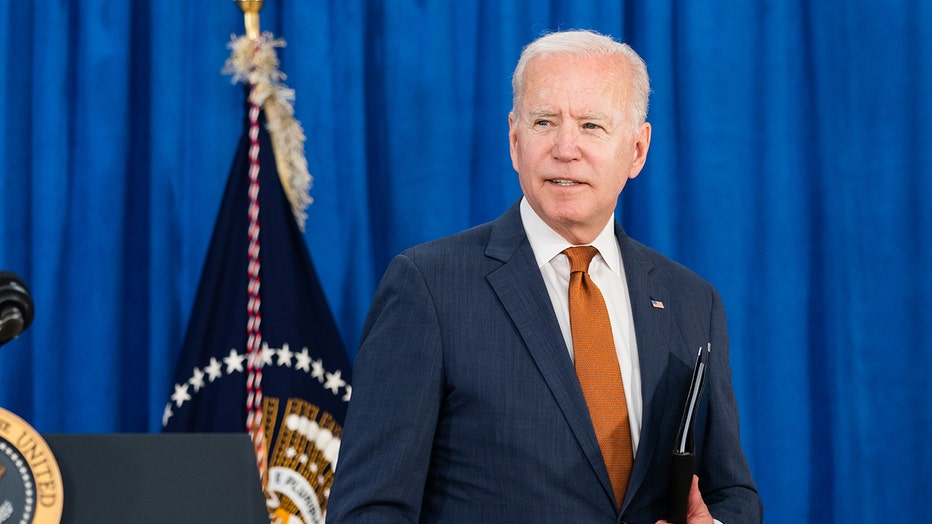President Biden bans Russian oil imports over Ukraine war

President Biden Russian oil imports to the U.S.
President Joe Biden on Tuesday announced a ban on Russian oil imports to the United States over the war in Ukraine.
WASHINGTON - President Joe Biden has decided to ban Russian oil imports, toughening the toll on Russia’s economy in retaliation for its invasion of Ukraine, according to a person familiar with the matter.
"We're banning all imports of Russian oil and gas and energy. That means Russian oil will no longer be accepted at U.S. ports," the president announced on Tuesday.
The move follows pleas by Ukrainian President Volodmyr Zelenskyy to U.S. and Western officials to cut off the imports, which had been a glaring omission the massive sanctions put in place on Russia over the invasion. Energy exports have kept a steady influx of cash flowing to Russia despite otherwise severe restrictions on its financial sector.

President Joe Biden delivers remarks on the May jobs report on Friday, June 4, 2021, at the Rehoboth Beach Convention Center in Rehoboth Beach, Delaware. (Official White House Photo by Adam Schultz)
The U.S. will be acting alone, but in close consultation with European allies, who are more dependent on Russian energy supplies. Natural gas from Russia accounts for one-third of Europe’s consumption of the fossil fuel. The U.S. does not import Russian natural gas.
RELATED: Florida gas prices soar to record high, passing $4 per gallon
Biden had explained his reluctance to impose energy sanctions at the outset of the conflict two weeks ago saying that he was trying "to limit the pain the American people are feeling at the gas pump."

Florida gas prices soar to record high, passing $4 per gallon
The average gas price in Florida is now at a record high. It clocks in at $4.15 a gallon – up from just 24 hours ago.
Before the invasion, Russian oil and gas made up more than a third of government revenues. Global energy prices have surged after the invasion and have continued to rise despite coordinated releases of strategic reserves, making Russian exports even more lucrative.
DOWNLOAD: FOX 35 NEWS APP | FOX 35 STORM TEAM WEATHER APP
SUBSCRIBE: FOX 35 NEWSLETTER | FOX 35 Orlando on YouTube
FOLLOW: Facebook | Instagram | Twitter
The U.S. and international partners have sanctioned Russia’s largest banks, its central bank and finance ministry, and moved to block certain financial institutions from the SWIFT messaging system for international payments.
But the rules issued by the Treasury Department allow Russian energy transactions to keep going through non-sanctioned banks that are not based in the U.S. in an effort to minimize any disruptions to the global energy markets.
Inflation, at a 40-year peak and fueled in large part by gas prices, has hurt Biden politically with voters heading into the November elections.
RELATED: Here's what gas cost the year you started driving
The sanctions created a possible trade-off for the president between his political interests at home and abroad. By invading Ukraine, Russia has potentially fed into the supply chain problems and inflation that have been a crucial weakness for Biden, who now is trying to strike a balance between penalizing Putin and sparing American voters.
MORE NEWS: Russia-Ukraine war: 2 million have fled Ukraine since invasion, UN says
Biden specifically highlighted the Russian energy carve-outs as a virtue because they would help to protect U.S. families and businesses from higher prices.
"Our sanctions package we specifically designed to allow energy payments to continue," he said.
Restricting the world’s largest exporter of natural gas and second-largest exporter of oil, after Saudi Arabia, could hurt the unity that U.S. officials say is key to confronting Putin.
Click here for the latest Central Florida news, Florida stories and local headlines.

